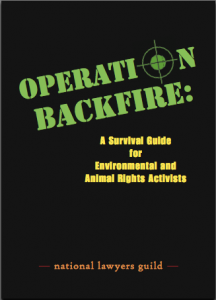See you in the streets.
Social justice activist Jaggi Singh surrendered to Toronto police early Tuesday morning to comply with a warrant following June’s G20 protests.
The Montreal-based community organizer faces several counts of criminal conspiracy, including alleged conspiracies to commit mischief to property, assault police, and obstruct justice.
Singh, 39, joins 16 other people known to be in detention 10 days after 1,090 were arrested during the G20 weekend.
Just a few hours before he voluntary walked into custody in the company of his lawyer, Singh told the Star that he could not comment on the charges because he had not yet seen what evidence police have against him.
But he did dismiss the notion of any criminal conspiracy.
“I helped people find housing and get transportation to come to a demonstration. That’s my conspiracy,” he said. “But give the police enough money and resources and they’ll transform protesters and organizers into criminals.’’
Currently a fulltime staffer of the Quebec Public Interest Research Group at Concordia University, Singh has also worked with activist organizations Solidarity Across Borders and Anti-Capitalist Convergence.
Because he was not picked up from the streets like hundreds of other citizens were, he feels that he is speaking from a “position of relative privilege.”
“I don’t even know everybody else (arrested), but I want to at least strike a note of caution that there should be an extreme amount of vigilance, vis-à-vis what the Crown and the police are putting out, especially given the misinformation the police put out in the aftermath of the G20,” he said.
According to a statement by No One is Illegal, which represents refugee claimants and is one of the community organizations with which Singh is affiliated, “He is currently in custody along with other G20 political prisoners who are awaiting bail hearings.
“Jaggi’s situation is still unclear. We hope he’ll be released immediately. He could remain in custody for some time.”
It would not be the first time.
Singh’s Wiki entry reads like a long rap sheet of incarcerations during summit protests. Charges are always dropped or he is later acquitted.
“I’m notorious for this whether I like it or not – and I don’t like it,” he laughed.
Singh first came to national prominence during the1997 Asia-Pacific Economic Cooperation conference in Vancouver, where he was arrested even before the summit began. A subsequent formal inquiry into RCMP actions found that he “was arrested on a warrant based on a spurious charge; the manner of his arrest was inappropriate in the circumstances; the timing of the arrest was calculated to prevent him from attending protests on ... the bail conditions sought were overly restrictive.”
Singh insists that such pre-emptive police moves are designed to stifle dissent – and that what happened at the G20 in Toronto was no different. Pre-dawn police raids into private homes, during which protest organizers were dragged from their beds, are just one example he named.
“You charge people for what they do, not what they look like or what they might do, right?’’ he said.
“I have sort of been through this story before in other ways, facing charges, been taken off the streets. It’s the escalation of the legal apparatus against protesters and it’s a criminalization of protest basically.’’
At least 14 G20-related prisoners are expected to appear in court Tuesday.
It’s not known if Singh will be one of them.























No comments:
Post a Comment